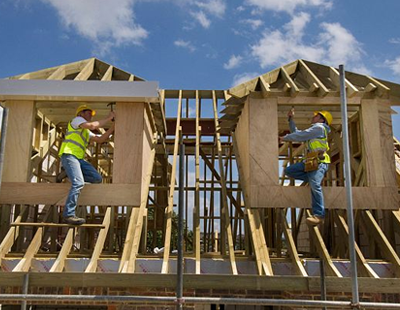How did the housing market transform from incredibly strong - almost too strong - early in the year, to a situation where the industry and public alike now fear for prices, affordability and the very real threat of mortgage default for tens of thousands of home owners?
The answer, of course, is that ‘we’ didn’t do it - politicians did.
But no, I’m not shrugging my shoulders, complaining about politicians en masse, and coming out with the banal ‘plague on all their houses’. Instead, I think part of the reason we’re currently walking a housing market tightrope is the political system, rather than politicians.
Although it seems a world away from the nitty gritty of house building, demand and supply, our national political process encourages wild policy swings and short-term thinking, and allows the unrepresentative and unreasonable to assume a totally unjustifiable degree of power.
It’s commonplace now to mock the method under which Liz Truss was elected Prime Minister by the Conservative party with the electorate a mere 160,000 or so - and throwing up a different result to that of Tory MPs along the way.
But on a much larger scale our political system promotes much broader unrepresentative results.
Take turnout: from the 80 per cent-plus turnouts of General Elections in the 1950s we fell to below 60 per cent in the 2001 election, and have not reached 70 per cent since. Therefore, whatever the result of any election, around a third of the population has no stake in the winner.
Looking at the 2019 General Election in particular, there was a 67.3 per cent turnout, and that was despite the campaign featuring divisive and controversial figures - notably Boris Johnson, Jeremy Corbyn and Nicola Sturgeon, amongst others.
From those who did vote in 2019, the Conservatives won a 43.6 per cent share. So if my maths are correct, the Conservatives won that election having secured the votes of just under 30 per cent of the actual population that could have voted - and with that ‘mandate’ of fewer than three in 10 votes from adults in the UK, the Tories won a landslide victory with a majority in the Commons of 80.
Drill down further and electoral analysts can identify certain key swing seats which effectively hold the balance of power - if a party channels resources and announcements tailored to the voters of those particular few dozen constituencies, that in itself could be enough to secure the election result.
The Tories have got this off to a fine art but the point I’m making isn’t party political - Labour victories in the past have been just as unrepresentative, in my view.
No, my point is that with an electoral system that effectively means two out of three voters will never back the winning side in an election, there’s little wonder we have such political disenchantment. And it’s no surprise that canny politicians - even ones with views highly unrepresentative of the country as a whole - can secure majorities by gaming the system.
So what’s the alternative? You can rightly point to imperfections aplenty in countries which have forms of proportional representation, and few would hold up - for instance - Italy as an example of political stability, even with its long-established PR system.
But in recent years those countries which have a process that ends up with more people backing the winner - even if it is achieved by a convoluted voting system - do appear to have avoided the extremes that we have seen in the UK.
And what does all this have to do with housing, estate agents and the rental market? Plenty.
The next election looks poised to have housing as a major area of political extremes. There will be possible rent freezes and a commitment to more tenant power from one side, and a more market-led approach from the other; on house building there will be more social and affordable from Labour, and a more private-led NIMBY-ish approach from the Tories; more centralised planning from the left, more decentralised from the right.
It goes on.
Do we want this see-saw, exaggerated by a political system that gives absolute power to a party which wins under a third of the popular vote? And then for it to be undone a few years later by the other side? (And in our current system, there really are only two sides).
The alternative may be more middle of the road, a lot less controversial and generating fewer headlines. But look around you, at the rest of the world. Wouldn’t Britain benefit from a period of boring rebuilding for the next few years? I think so…
*Editor of Letting Agent Today and Landlord Today, Graham can be found tweeting about all things property at @PropertyJourn





/Parliament-Night-400x310.jpg)
/Rishi%20Sunak%2003_400x310.png)
/LizTruss01-400x310.png)

/RishiSunak-400x310.jpg)




.jpg)
.jpg)






.png)



Join the conversation
Jump to latest comment and add your reply
We opened our first office in 1992 when John Major's massive misjudgement over the ERM led to interest rates of 10% one morning in September to 15% by the afternoon. But I don't recall the hysteria there is around today. It was absolutely the best time to start an estate agency and it's still going strong today - just not with me involved. There will always be circumstances created by others that will give you challenges that are outside of your control. Clever estate agents will buckle down, adopt, adapt improve. Use the time ahead to sharpen everything. Your skills. Your marketing. Your property marketing. Your training. Your resolve to succeed. Get lots of sleep. Stay healthy. Love life. You were made for a time such as this.
Please login to comment